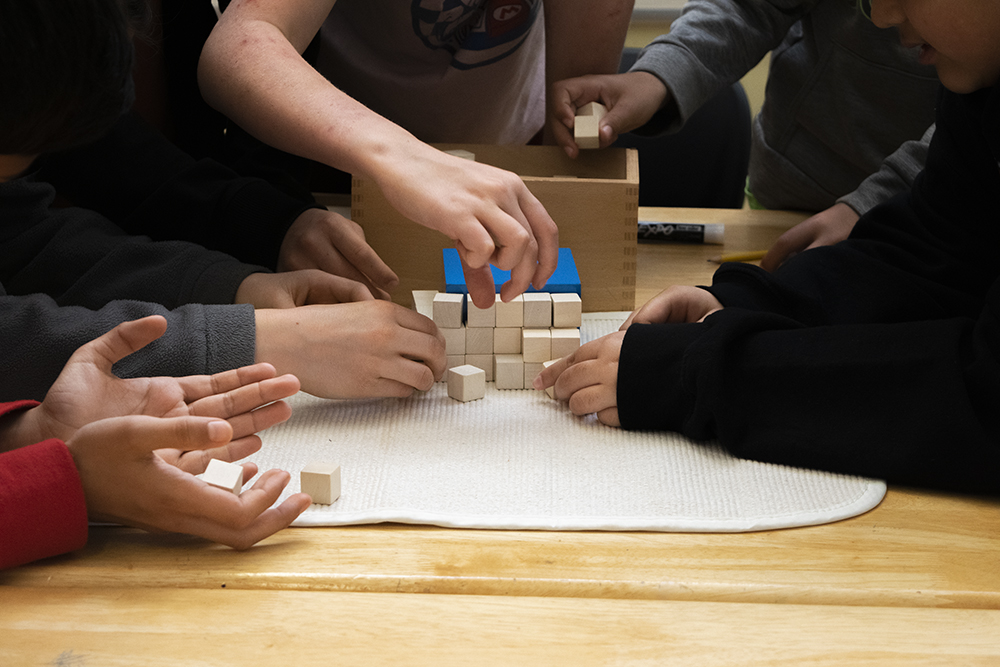About
From six to 12 years, children are highly attuned to a wider world than what they knew in early childhood. With increasing interest in the social environment, children work in small groups to explore large concepts in pursuit of reasons, connections and patterns. In this learning environment, each child progresses at their own rate and is challenged with the opportunity to practice time management in the classroom.
The Montessori elementary curriculum is rich and interdisciplinary, connecting many subject areas into a vast network of interrelated information. With compelling stories, engaging materials, and individualized pacing and instruction, faculty members appeal to the students' imaginations and spark curiosity.
- Individualized curriculum plan and project-based learning
- Focus on mastery and ownership of learning
- Multi-age classrooms facilitate learning and leadership skills
Elementary levels
Lower ElementaryThis level includes children between 6 and 9 years.
Upper ElementaryThis level includes children between 9 and 12 years.
Skills & Classes
All students are expected to complete specified work in each of the following areas. They are given time to choose additional work in subjects that most interest them.

Practical Life
Students are ready for new challenges in this area: cooking meals in our Garden-to-Table program, planning and conducting short trips off campus to conduct research at area destinations or museums, mediating conflict, and leading traditions to promote a positive culture at school.

Education of the Senses
Elementary students are drawn to making connections. They enjoy classifying things that can be found outdoors and work that involves scientific nomenclature. Learning to conduct experiments presents this age group with new challenges in the use of their senses and the articulation of what they observe.

Language
Elementary students love literature and creative writing. The tradition of shared inquiry provides a structure for discussions based on stories that convey the timeless themes in human interaction. Student research motivates extended writing projects and provides opportunities to practice oral presentation skills. Abstract concepts in grammar are made accessible and fun with the Montessori materials.

Math and Geometry
The Montessori math materials enable a seamless transition for students moving into the elementary years. Materials that are familiar from the Children's House level continue to be used for more advanced lessons while new materials are also introduced. Montessori materials present new concepts in a very concrete way, then increasingly incorporate abstract representations until the materials are no longer needed. The curriculum allows students to simultaneously memorize math facts and work with new complex concepts.

Geography and History
Elementary students are naturally drawn to the awe-inspiring topics of our universe and the natural forces at work over vast expanses of time. The history of human civilization and the study of fundamental needs have a similar appeal for their expanding minds. At this age they study natural features that shape life on Earth and begin to understand how those factors relate to political geography and economics. The accomplishments of heroes from times and places near and far are a common source of inspiration. Likewise, they take very seriously issues of fairness and justice in history and current events as well as within the family and the school.

Science
Students' work includes physics, chemistry, botany, zoology, and ecology. They gain an understanding of concepts in these areas and the interdependence between them.

Creative Expression
Students gain confidence with self-expression in a rich variety of co-curricular programs, including art, music, ecology, cooking, and technology.


